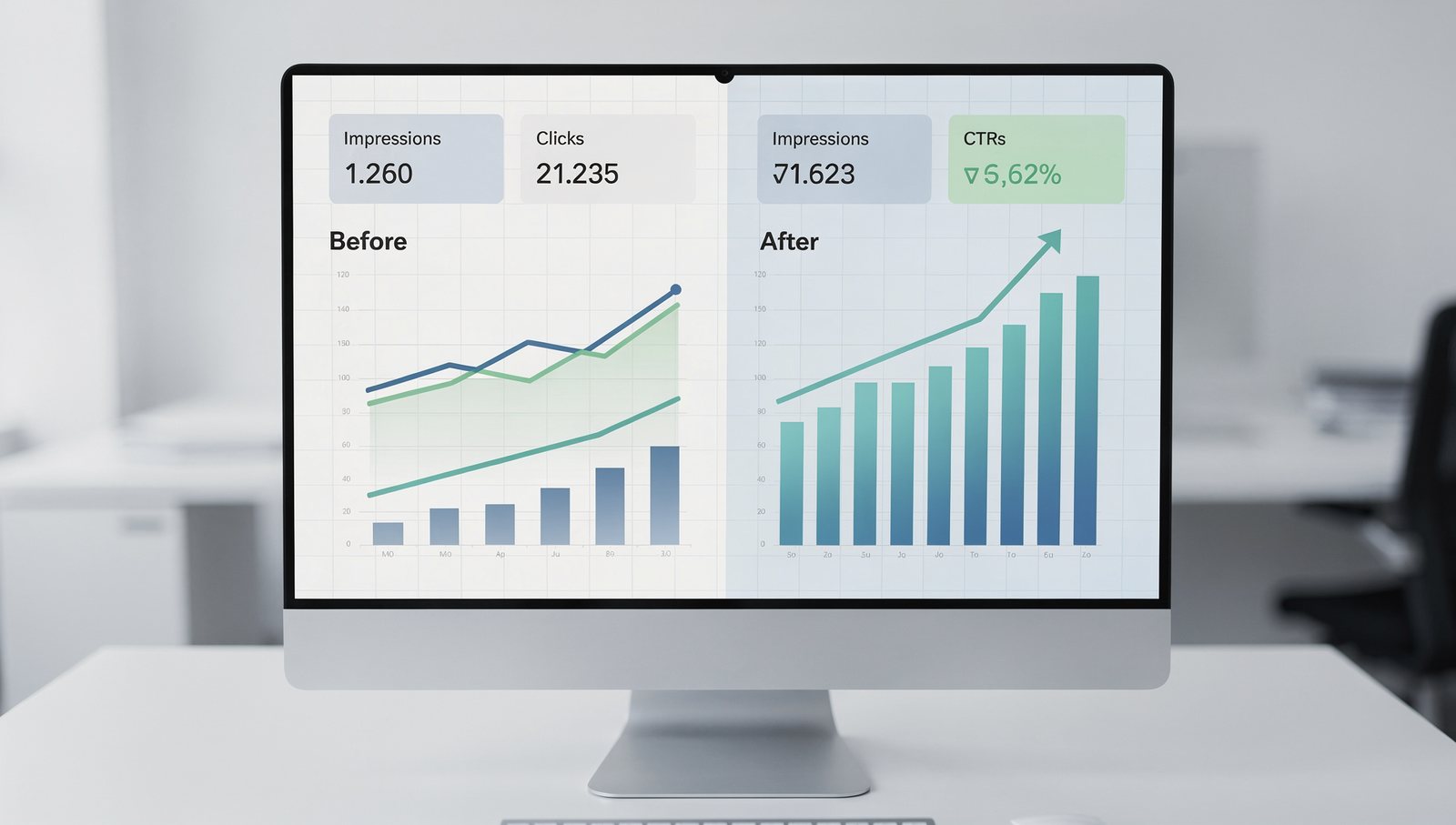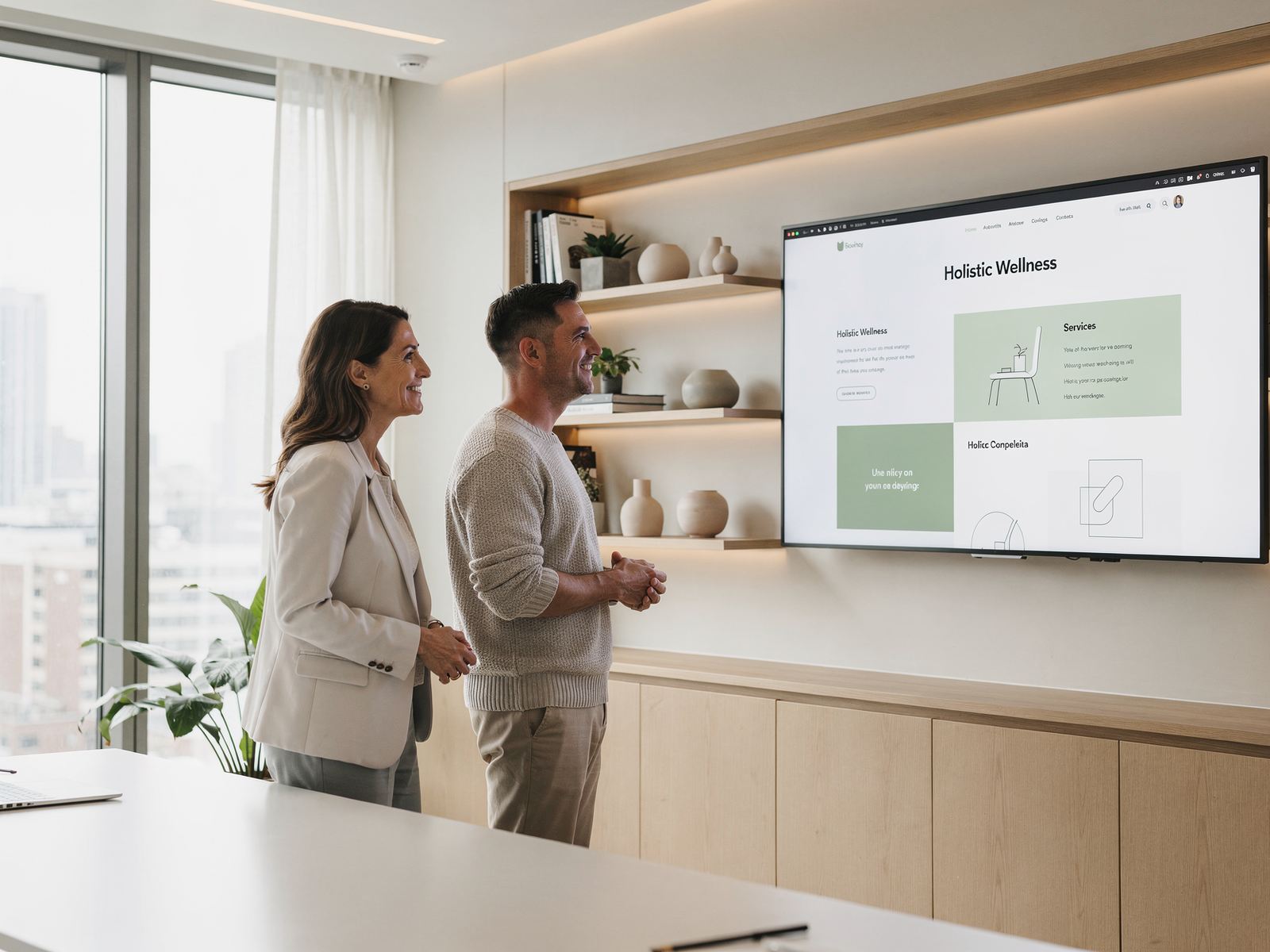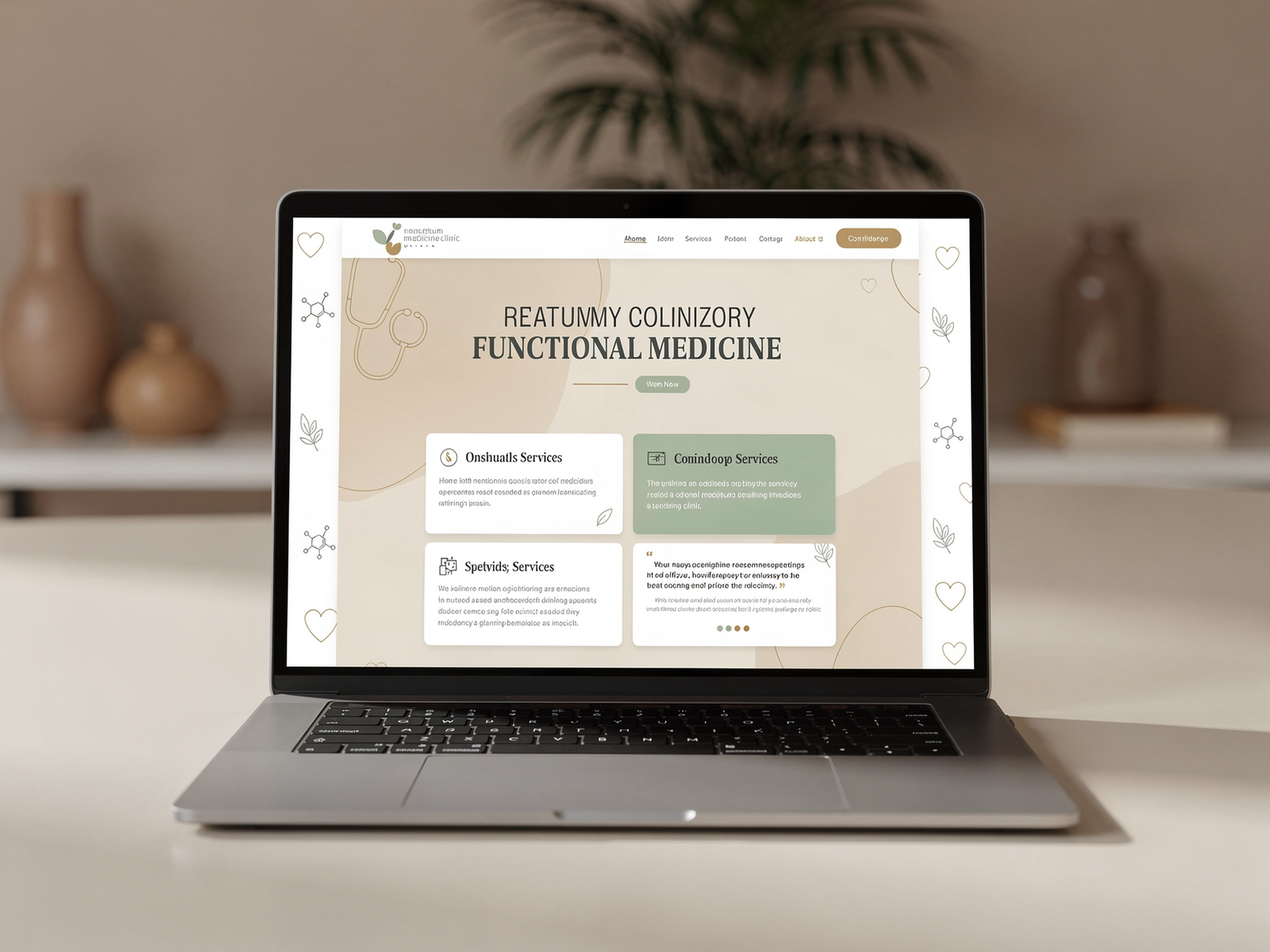7 Google Maps Ranking Tips That Get Realtors More Calls
Watch the video to learn how to get your google business profile outshining and outranking every other realtor in your area!
Want More Clients Fast?
Steal This Website Rescue Kit to Get More Clients, More Calls, and More Sales on Autopilot
How to rank on Google Maps for realtors is a big deal. In the first sentence, I’m grabbing your attention and telling you what you’re about to learn. If you are a busy real estate pro, you want to show up right when people search “homes near me” or “realtor in [Your Town]” on Google Maps. Getting that prime spot can be game-changing. And you are about to get expert guidance that’s friendly, practical, and yes, nerdy enough to make you smile.
Why Google Maps Ranking Matters for Realtors
Imagine someone searches “real estate agent near me” on their phone while touring an open house. Google Maps pops up with local agencies and agents. If your business appears in that coveted top three local pack, you are going from zero awareness to “I’ll call that person right now.” Stats say about 46 percent of all Google searches have local intent. And up to 93 percent of consumers pick local services from the first page including the Maps pack.
That’s the power of ranking on Google Maps for realtors. Drive local leads, increase visibility, get more calls. Let’s dig into how to make that happen.
Claim and Perfect Your Google Business Profile (GBP)
Your Google Business Profile is the epicenter of your Maps presence. If you don’t have it claimed, you might as well hand your territory over to competitors.
Steps to optimize your GBP
Claim your listing and verify it. Think of it like planting your flag in the digital map frontier.
Use your official business name, exactly. Real-estate jargon plus your agent name feels natural, for example: “Jane Doe Real Estate by Digital Dream Homes.”
Choose the most accurate primary category, like “Real estate agent” or “Real estate services” rather than vague ones.
Add secondary categories only if relevant such as “Real estate consultant” for more niche appeal.
Complete every section: hours, phone, address. Make sure your hours are current, including open-house hours if you’re doing them.
Upload high-quality photos: the front of your office, your smiling team, even a staged home. Businesses with photos get 42 percent more requests for directions, 35 percent more click-throughs to their websites.
Nerdy fun fact: Google says listings with photos get way more engagement. If you haven’t taken photos recently, it’s time to dust off your camera or phone and channel your inner architectural photographer.
Build Consistent, Local-Friendly NAP Citations
NAP stands for Name, Address, Phone number. If Google spots inconsistency like “John Smith Dream Homes” vs “Smith Dream Homes LLC” your ranking may suffer.
What to do
Audit your local citations across directories like Yelp, Zillow, Realtor.com, and local chamber of commerce websites.
Make sure your NAP is identical everywhere.
Fix any mismatches. This is like assembling Lego bricks so they lock perfectly.
Consistency boosts trust signals to Google. When each listing matches, Google says “Yes, we know this is the same legit business, and we will show it confidently.”
Collect Reviews and Respond to Them
Reviews are one of the smiley face numbers in your ranking algorithm.
Encourage satisfied clients to leave reviews. Ask via follow-up email, text, or a little note on your website.
Respond to every review good and not so good with gratitude, warmth, and professionalism.
Reviews with keywords like “realtor,” “luxury homes,” and your city name add local keyword relevance.
Aim for quantity and recency. A burst of 5 to 10 new reviews monthly can give Google a joy boost.
Here’s a real-world scenario: You help a first-time homebuyer find a cozy bungalow. A week later you send a friendly text: “I’d love to know how you feel about your new home. If you choose to leave a review, here’s the link.” A simple request, human touch, big impact.
Use Locally Relevant Keywords in GBP and Website
Your GBP short description, your website’s homepage, and your About page should naturally include your target neighborhood names.
Example: “Serving discerning buyers in Brookside, Chesterman Hills, and Riverbend.” Sprinkle these in a way a visitor would appreciate, not SEO spam.
Pro tip: Create small blog posts like “[Town] real estate market trends” and internal-link them to your pillar posts like Why Living in [your city] is amazing. You can explore some blog post ideas here.
Build Locally Focused Website Pages
Besides your GBP, your website should have pages tailored to the communities you serve.
“Homes for sale in [Neighborhood A]” with local market stats, featured listings, client testimonials.
Include a dynamic market chart or map showing average days on market or price per square foot. You could create a simple bar chart in an image showing average sale price changes over the last year in your local area.
Embed an interactive map so visitors can explore neighborhoods visually. That aligns users’ intent with Google’s location signals.
These pages feed Google context about where you operate. The more local relevance, the higher your Maps potential.
Get Local Links and Mentions
Think of links as friendly votes. Local sources carry big weight.
Ways to earn them:
Sponsor community events or charities.
Offer articles or quotes to local press about real estate trends.
Collaborate with local businesses (stagers, inspectors, lenders) and ask for a brief “partner mention” or “featured in” link.
For example, doing a “Fall staging trends for [Your Town] homes” story for a neighborhood blog can net you a link plus name-recognition. That’s SEO magic.
Use Google Posts and Regular Updates
Google allows you to publish posts to your Business Profile, like “Just sold in Chesterman Hills!” or “Open house Saturday 1 to 3 pm.”
These posts show up in your profile and on Maps.
They don’t directly boost ranking, but keep your listing fresh and engagement high.
Freshness signals are juicy to Google.
Keep it consistent. Even a quick weekly highlight helps. Logo, headline, brief text, photo, that’s enough to stay active.
Track Local Ranking and User Behavior
Use tools like:
Google Search Console: monitor how often your site appears in map-related queries.
Google Analytics: see where visitors find you, whether direct, organic search, or Maps click-throughs.
Local rank trackers that show how you rank for “realtor + [Town]” in Maps versus search results.
Graph idea: You could chart “Monthly Map Views → Direction Requests → Website Clicks” to show the funnel. In your dashboard, plot that data monthly, and celebrate each bump with your team. Yes, nerds get excited by upward curves.

Mobile-First Preparation
Most users search for realtors on their phones.
Make sure your site loads fast on mobile with compressed images and streamlined code.
Have click-to-call buttons big enough for thumbs.
Ensure your GBP displays clearly on mobile with a prominent “Call” and “Direction” button.
Google rewards usability. If your mobile experience is smooth, users engage longer and that’s good for SEO signals.
The Power of Schema Markup
Schema can be your secret sauce. For example:
Add LocalBusiness schema on your site, with your name, address, phone, and coordinates.
Use RealEstateAgent schema if possible.
Add OpeningHours, aggregateRating, and sameAs (like your Facebook page link).
It helps Google confirm your details and can enhance your Maps listing.
Summary Table: Quick Checklist
| Tactic | What to Do | Why It Matters |
|---|---|---|
| Google Business Profile | Claim, verify, optimize | Foundation of Maps presence |
| NAP Citations | Consistent everywhere | Builds trust and clarity |
| Reviews | Collect, respond, update | Boosts ranking and engagement |
| Local Keywords | Use neighborhoods naturally | Adds search relevance |
| Local Pages on Website | Neighborhood-specific content plus charts | Signals local expertise |
| Local Links | Partner mentions, press, sponsorships | Increases authority and credibility |
| Google Posts | Frequent updates | Keeps your GBP fresh and engaging |
| Tracking Metrics | Monitor Maps views, direction clicks | Measures impact and guides optimization |
| Mobile Optimization | Fast load, thumb-friendly actions | Improves user experience and SEO signals |
| Schema Markup | LocalBusiness, RealEstateAgent, ratings | Enhances visibility and Google’s understanding |
Real-World Success Story
Meet Sarah, a realtor in Brookside serving luxury clientele. She:
Claimed her GBP with exact hours and category.
Cleaned up her citations across Zillow, Yelp, and local directories.
Asked clients to leave reviews and replied to each.
Created neighborhood pages with charts showing median sale prices.
Added schema markup to her site.
Tracked monthly Maps clicks and saw a steady 25 percent increase in page visits and 15 percent increase in direction requests over three months.
Result: She went from ranking in position 7 on Maps to breaking into the top 3. That meant more listing calls, more open-house foot traffic, and ultimately, more signed deals.
Smooth Transitions into Action
You’ve learned what works. Now imagine pairing these strategies with your new, gorgeous site from Digital Dream Homes. Think of your site as the perfectly tuned engine, and this Google Maps domination as the sleek turbo-charger.
If you want to:
Effortlessly make ultra-local content that shines,
Seamlessly integrate schema and neighborhood pages,
Track how every tweak moves leads and map visibility,
Digital Dream Homes is your trusted guide to take all that strategy and bring it alive online.
You are already armed with great knowledge here at no cost. You’re smart to care about your local SEO. And now your next step is easy: book a free consultation to get tailored help building the site and strategy that finally locks in your top-maps spot.
Final Thoughts
Ranking on Google Maps for realtors takes care, strategy, consistency, and a touch of nerdy SEO love. Nail your Google Business Profile, make your website highly local and user-friendly, gather reviews, build local links, keep things fresh, and let Google and your clients fall in love with your brand.
Ready to make Google Maps your new lead machine? Reach out now to book a free consultation with Digital Dream Homes. We can’t wait to help you dominate your local market and show you how to rank on Google Maps for realtors.
Some Featured Blog Posts:
1. Facebook Ads vs Google Ads for Realtors
Matt Pieczarka
Want a Free Website Audit?
Fill out your information below and we will send you a personal screen share video of tips on how to make your actual website better!
See How Many Closings You're Losing to Zillow!
Click Here to Use our Calculator to See How Many Clients Zillow is Taking From You Per Year!
Other Posts About Google You’ll Find Useful…
- Google Analytics For Small Business Owners: Your Secret Weapon
- Retargeting Ads For Small Business That Win More Clients
- Google Ads Budget For Small Business: The Simple Math That Works
- 9 Reasons Small Business Should Hire a Google Ads Agency
- Google Ads ROI Tracking For Small Business That Actually Works
- Google Ads Copywriting Tips Small Business Owners Can Use Today
- 12 Small Business Google Ads Mistakes to Avoid
- Best Google Ads Keywords for Small Business That Actually Convert
- How to Set Up Google Ads for Small Business Step-By-Step
- Google Ads vs Facebook Ads Small Business Showdown
9 Functional Medicine Local SEO Wins That Fill Your Calendar
9 Functional Medicine Local SEO Wins That Fill Your Calendar Watch the video to learn the best SEO technique to get the most traffic to your website! Want More Clients Fast?
7 Functional Medicine SEO Company Checks That Bring More Patients
7 Functional Medicine SEO Company Checks That Bring More Patients Watch the video to learn how to use your website to get qualified leads and more patients! Works for every
7 Functional Medicine SEO Services That Bring More Patients
7 Functional Medicine SEO Services That Bring More Patients Watch the video to learn how to structure your website for the maximum conversions. Works for every industry! Wan
5 Functional Medicine Website Consulting Tweaks That Get More Patients
5 Functional Medicine Website Consulting Tweaks That Get More Patients Watch the video to learn how to structure your website for the maximum conversions. Works for every industry!
7 Functional Medicine Website Redesign Signs You’re Losing Patients
7 Functional Medicine Website Redesign Signs You’re Losing Patients Watch the video to learn how to structure your website for the maximum conversions. Works for every industry!
7 Functional Medicine Website Support Wins That Grow Your Practice
7 Functional Medicine Website Support Wins That Grow Your Practice Watch the video to learn the exact layout to maximize your lead conversions on your website! Works with any indus
7 Integrative Medicine Website Design Services That Win Patients
7 Integrative Medicine Website Design Services That Win Patients Watch the video to learn how to craft your homepage for maximum trust and boost conversions for more leads and sale
7 Holistic Doctor Website Design Secrets That Book Clients
7 Holistic Doctor Website Design Secrets That Book Clients Watch the video to learn the exact layout to boost leads and sales on your website! https://youtu.be/XaEbNPZxi0U?si=AZP_g
9 Functional Medicine Web Design Agency Benefits for Clinics
9 Functional Medicine Web Design Agency Benefits for Clinics Watch the video to learn how to craft the perfect homepage layout to boost trust and sales! https://youtu.be/XaEbNPZxi0









